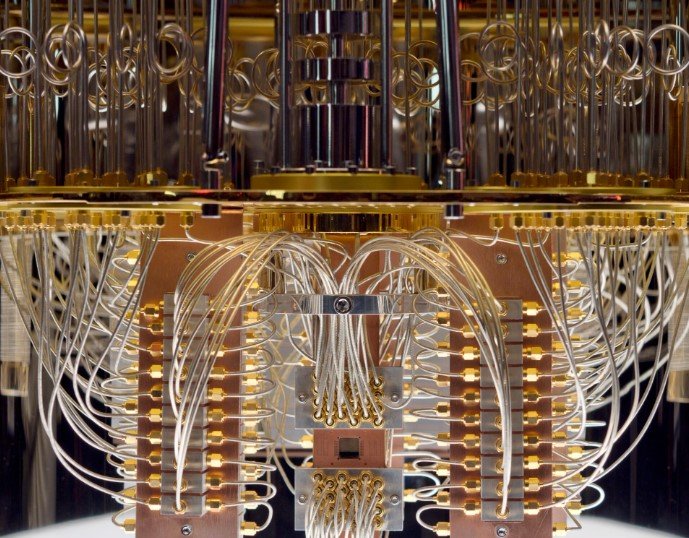A bold new initiative aims to turn science into soft power, drawing Gulf nations into a regional tech alliance against growing influence from Beijing, Tehran, and Moscow.
Washington and Jerusalem are joining forces once again — this time in the lab. A $200 million tech initiative is underway to build a joint U.S.-Israel research hub focused on artificial intelligence and quantum science, with ambitions that go far beyond equations and patents.
The plan? Cement a strategic alliance with Gulf countries like Saudi Arabia, the UAE, Qatar, and Kuwait. And in doing so, build a high-tech counterweight to what some officials are now calling a “digital triangle” linking China, Iran, and Russia.
It’s as much about geopolitics as it is about science.
More Than Just Research—It’s a Statement
The project is being shepherded by two of Israel’s most influential scientific figures: retired Major General Tamir Hayman, now head of Israel’s Institute for National Security Studies (INSS), and Dr. Smadar Itzkovich, the founder of the AI & Quantum Sovereignty Lab (AIQ-Lab).
Hayman brings the intelligence community’s long-range view. Itzkovich adds the innovation spark.
“This isn’t just about circuits and code,” she said in an interview. “It’s about building a technology architecture that supports economic independence, military security, and yes, even diplomacy in a volatile region.”
Their vision is sweeping — to transform Israel’s quantum research strength and America’s financial muscle into a central node for regional science diplomacy.

Trump’s Signature or Congress’ Stamp?
The funding — a hefty $200 million to start — is expected to come from the U.S. government. Whether it flows through an executive order from President Donald Trump or via Congress is still up in the air.
But the political momentum is strong.
Backed quietly by officials in the State Department and Israel’s Defense Ministry, the plan is being viewed as a strategic “third rail” — one that won’t just electrify academic ties but also help sideline Iranian influence.
“This center is part of a long game,” said a senior Israeli official involved in early negotiations. “We’re not just trying to beat China to a Nobel Prize. We’re trying to shift alliances.”
And while the ink isn’t dry yet, early draft proposals suggest a multi-campus setup, with locations in Tel Aviv, Washington, and a third satellite center likely in the Gulf.
Courting the Gulf: Quiet Talks, Bold Goals
The diplomatic angle is delicate. But the direction is clear. Talks are already underway between Israeli scientists and Gulf state innovation ministries, particularly in the UAE and Saudi Arabia.
A senior adviser to the Saudi Ministry of Investment, speaking on condition of anonymity, confirmed that exploratory discussions have taken place.
“There’s shared anxiety about overreliance on Chinese systems,” he said. “AI is no longer neutral. Whoever builds the infrastructure controls the narrative.”
That’s not just rhetoric. In recent years:
-
Huawei tech has been embedded in Gulf telecom networks
-
China has helped Iran roll out encrypted military communication systems
-
Russian AI firms are rumored to be advising Tehran on battlefield automation
Against this backdrop, Israel is offering something different: partnership with no backdoor surveillance strings attached.
Who’s Bringing What to the Table?
Israel enters the equation with an outsized scientific footprint. It ranks among the top 10 countries for quantum research citations and has multiple government-backed AI programs already in place.
The U.S. brings scale — both in funding and defense-industrial capacity.
Here’s how the proposed center would split responsibilities:
| Contributor | Role in the Initiative |
|---|---|
| Israel | Quantum hardware, physics research, regional access |
| United States | Funding, AI ethics frameworks, advanced computing gear |
| UAE / Saudi Arabia | Infrastructure, data testing environments, regional support |
This model reflects a shift from transactional tech agreements to something more permanent — a shared ecosystem.
Quantum Isn’t Theoretical Anymore
While AI grabs headlines, it’s quantum computing that has defense officials on edge.
Quantum tech can potentially break most modern encryption. It also promises massive speed-ups in simulations, like nuclear testing or battlefield logistics.
One Israeli defense analyst compared it to radar in World War II — invisible at first, but eventually decisive.
“It’s not about if quantum will matter,” he said. “It’s about who gets there first and sets the rules.”
And Israel believes it has a head start. Labs in Haifa and Rehovot have already built quantum sensors capable of detecting submarines. American firms like Google and IBM, meanwhile, have quantum systems running thousands of qubits in test environments.
The China-Iran-Russia Triangle Looms
It’s no accident this initiative is emerging now. In the past 18 months, Beijing, Tehran, and Moscow have tightened tech coordination.
China’s Baidu has reportedly assisted Iran’s AI language modeling. Russian engineers are working with Iran’s drone units. And Chinese quantum gear is being shipped into military sites in central Asia, according to recent satellite data reviewed by defense analysts.
A report from the Wilson Center warned last month: “There is growing evidence that quantum technology is being weaponized across autocratic alliances.”
That’s exactly what the new U.S.-Israel hub is meant to disrupt.
What Happens Next?
The timeline remains fuzzy, but momentum is picking up.
Officials close to the plan say a public announcement could come before the end of 2025. Behind closed doors, universities in Boston and Abu Dhabi are already drafting curricula in anticipation of exchange programs.
Meanwhile, Itzkovich says she’s optimistic.
“This isn’t Cold War science. This is connective tissue. We’re building something bigger than algorithms.”
And maybe that’s the quiet genius of it — a new kind of alliance, forged not in treaty rooms, but in code.








